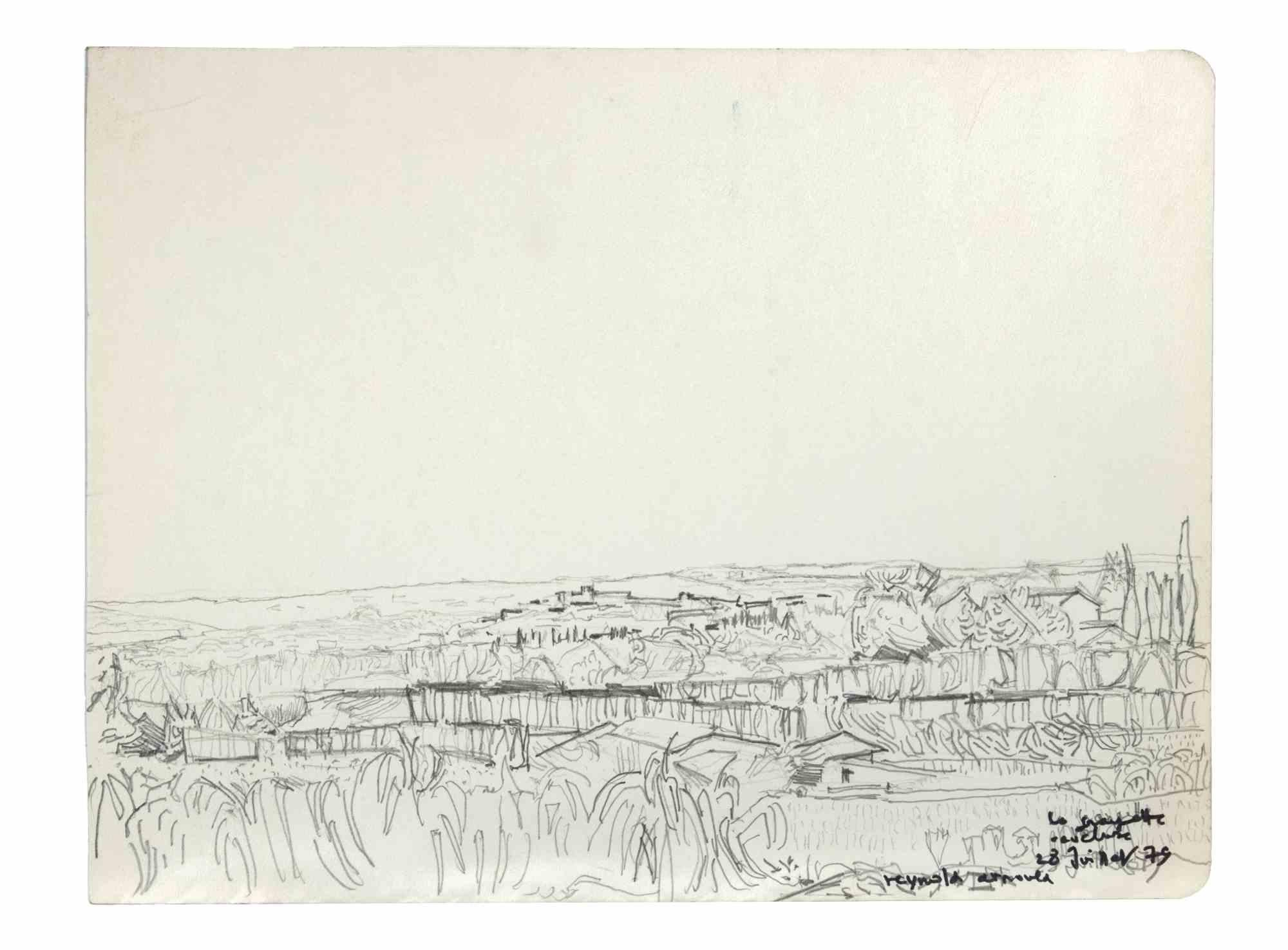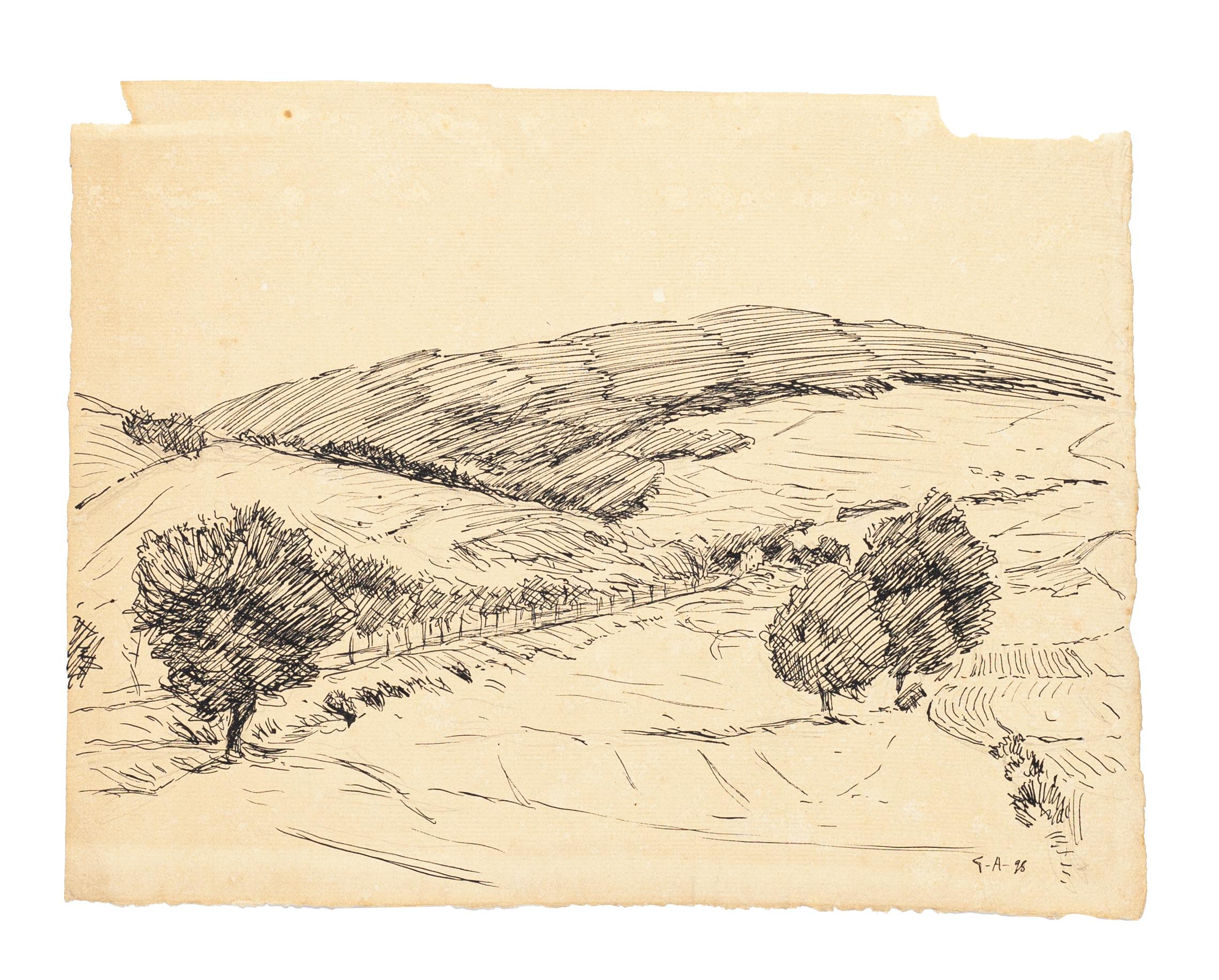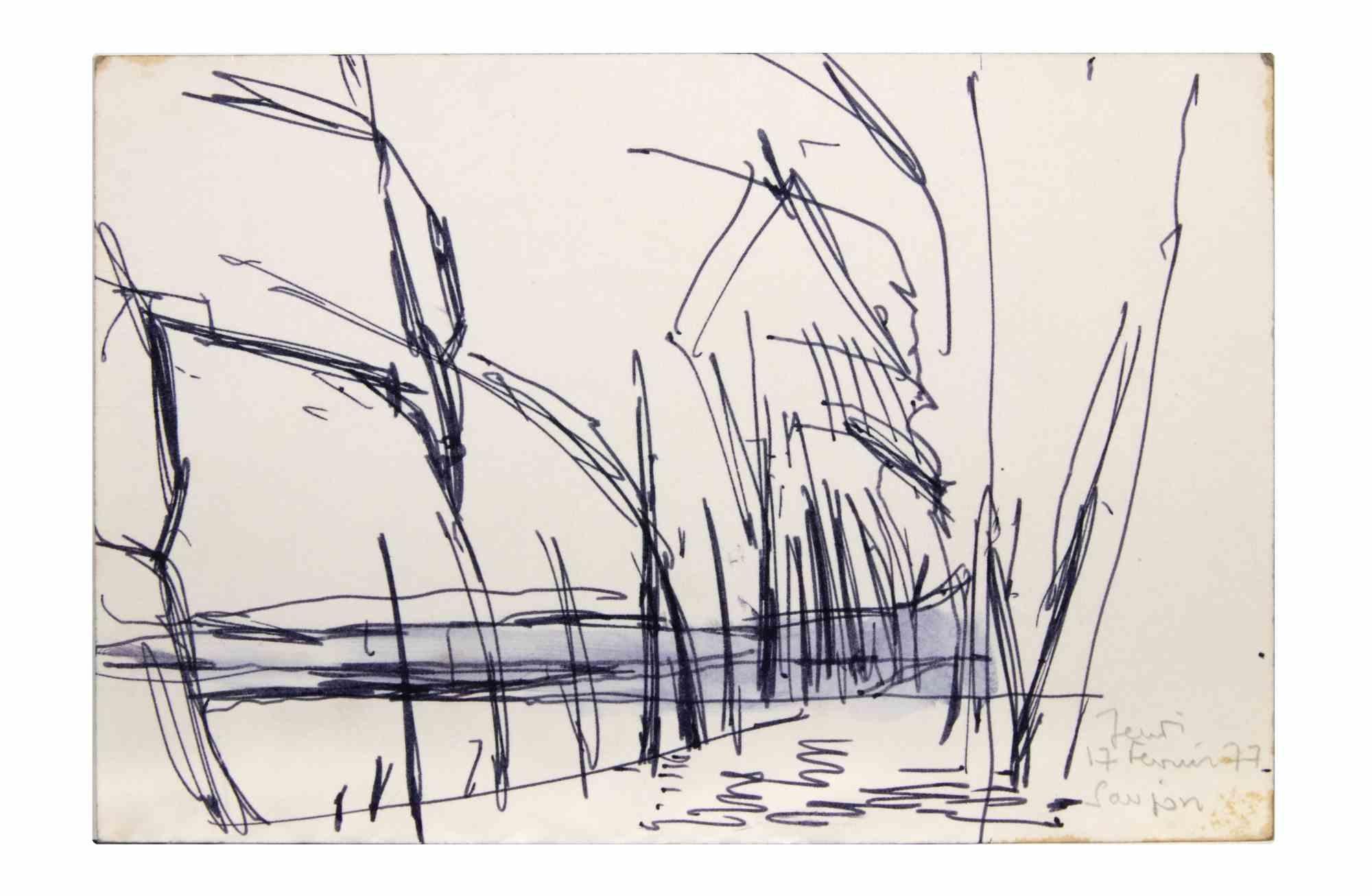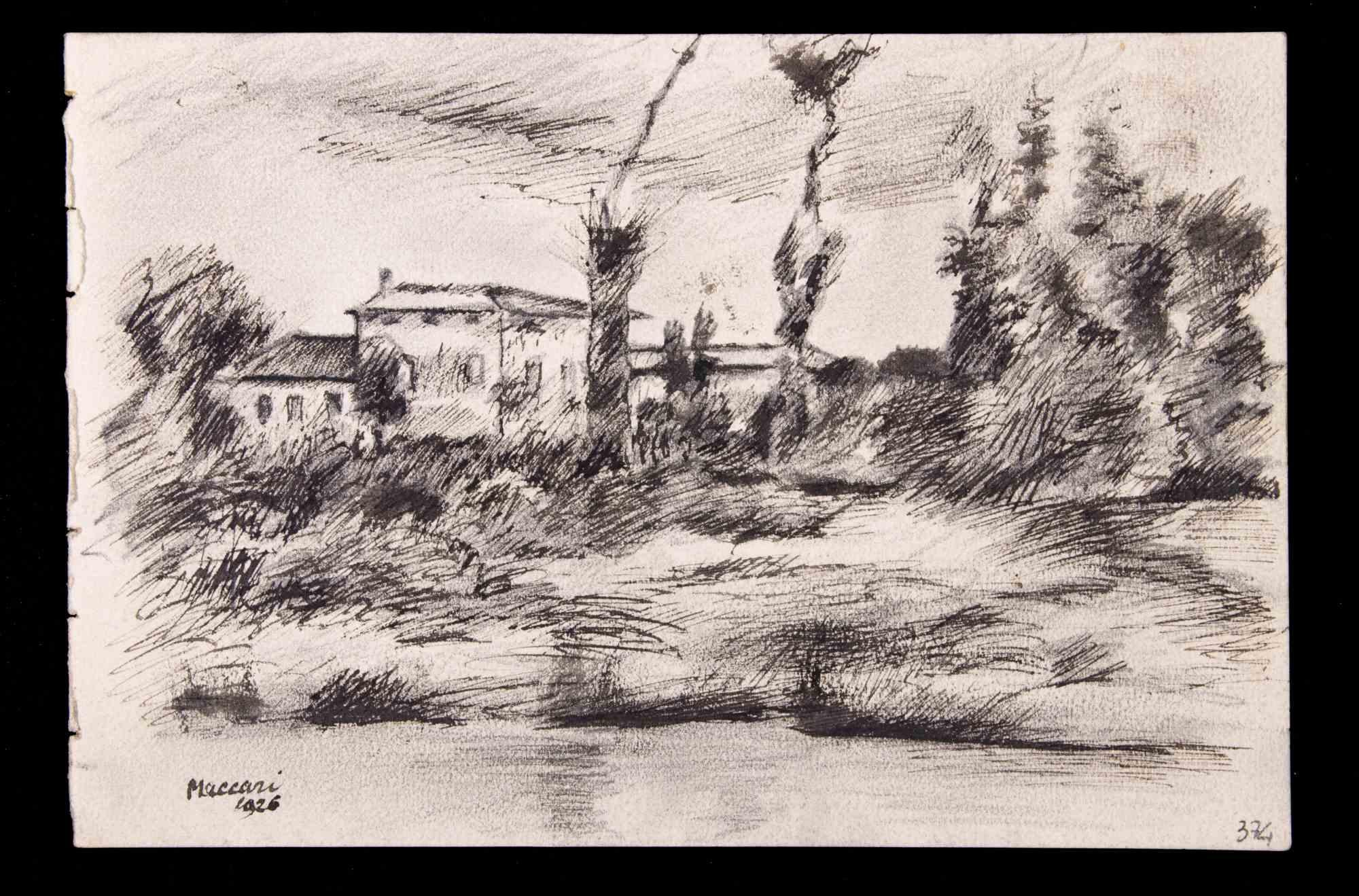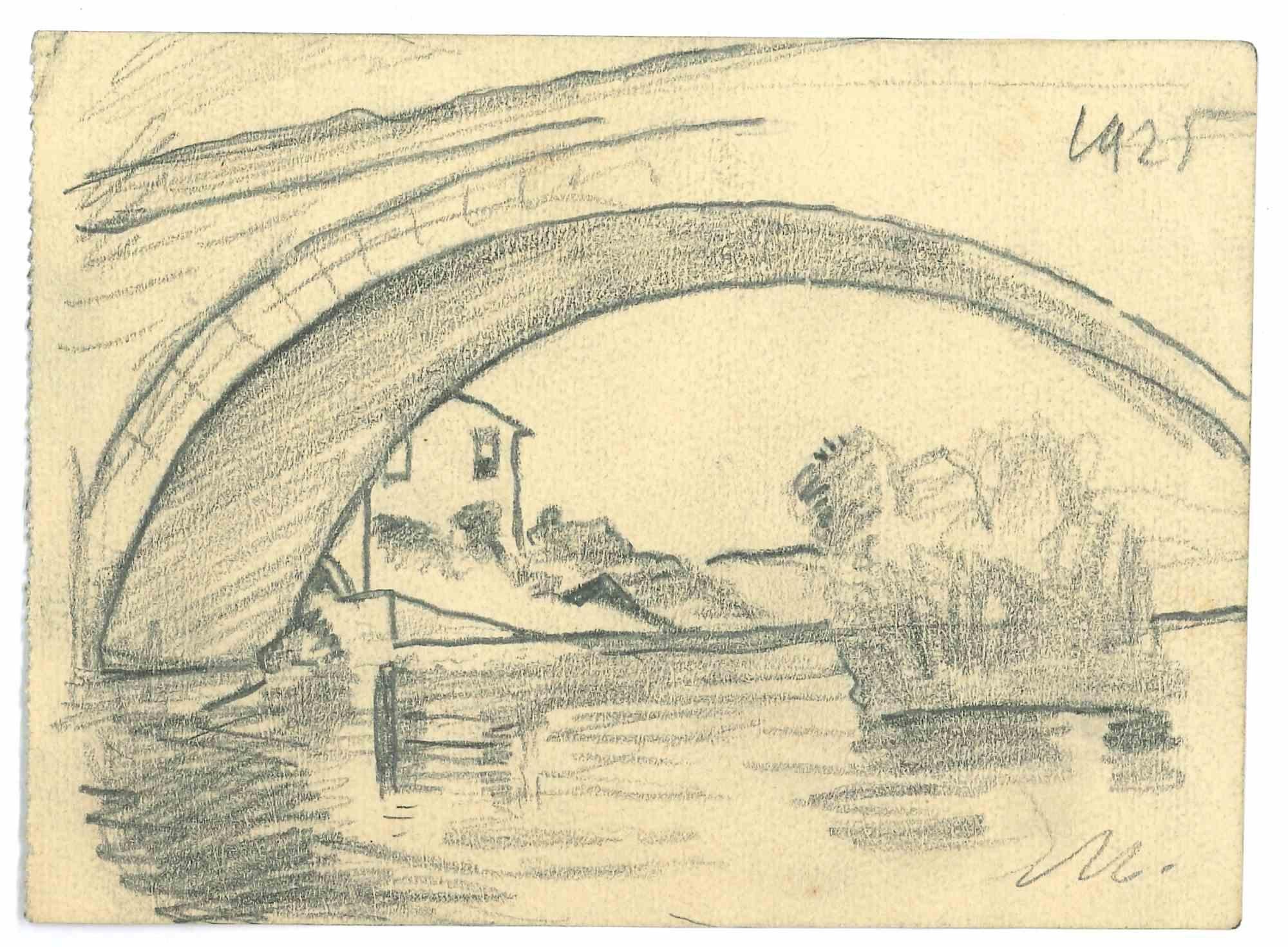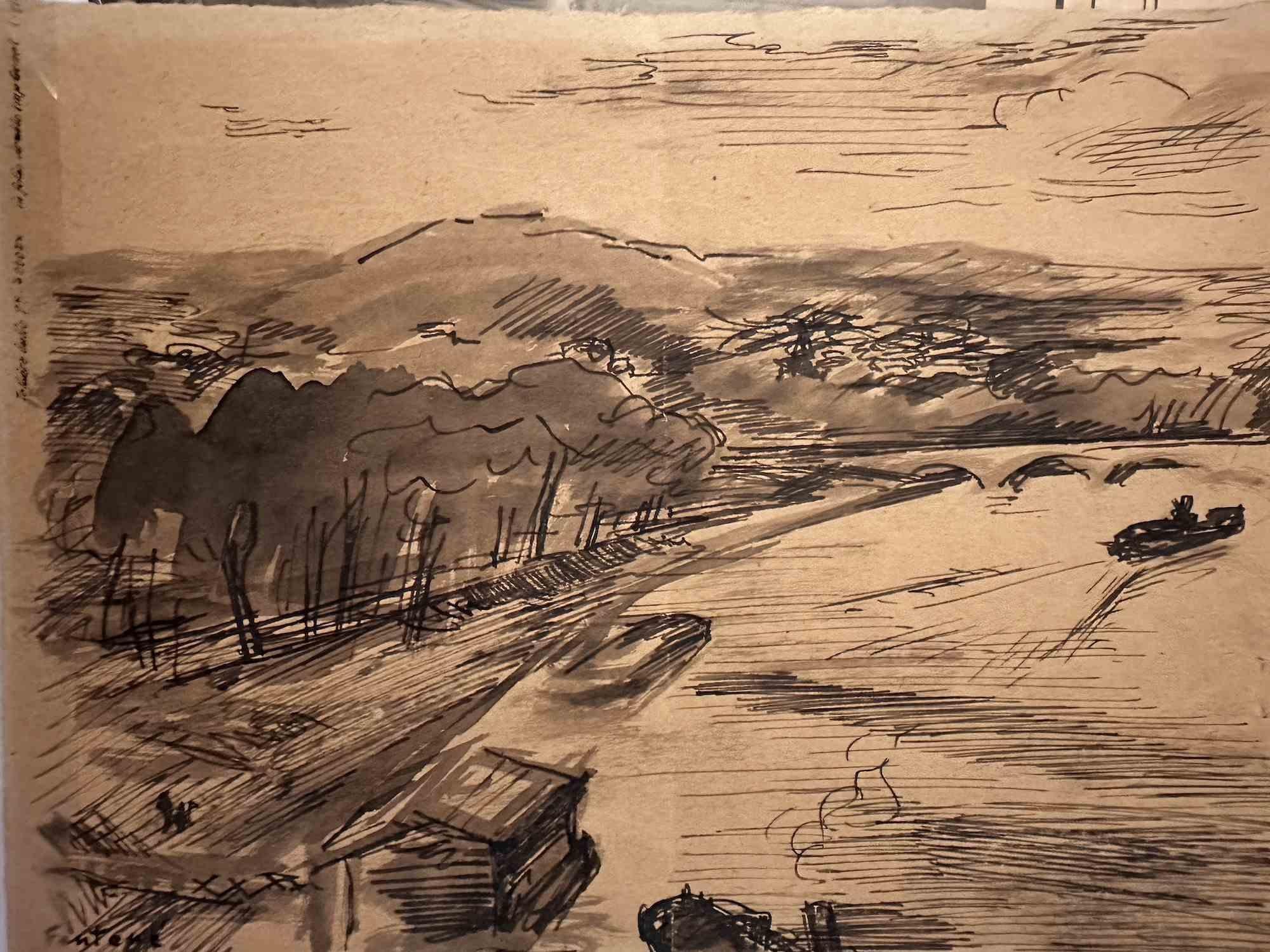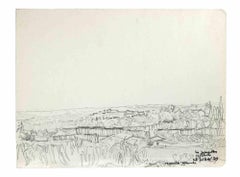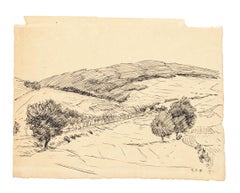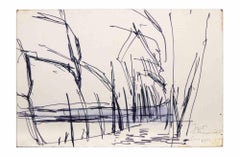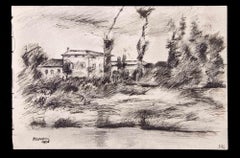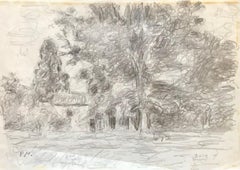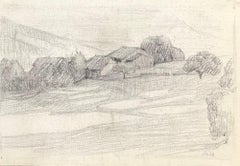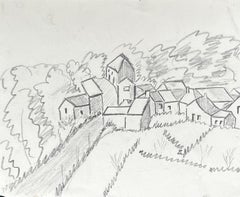Items Similar to Landscape - Black Marking Pen Drawing by G. Laurieu - 1954
Want more images or videos?
Request additional images or videos from the seller
1 of 5
Gaston LaurieuLandscape - Black Marking Pen Drawing by G. Laurieu - 19541954
1954
$599.38
£445.25
€500
CA$832.30
A$908.23
CHF 476.38
MX$11,030.80
NOK 5,950.30
SEK 5,623.33
DKK 3,806.45
About the Item
Landscape is an original drawing in marking pen on cardboard realized in 1954 by Gaston Laurieu( 1908-1983).
Hand-signed and dated on the middle left with the dedication of the artist.
The State of preservation is very good.
The artwork represents a French landscape of a city with the traditional buildings, through intense black color, skillfully depicted by quick and confident strokes, the black shapes and drawing on the right resembling of the trees, demonstrates an expressionistic style of creation and the mastery of the artist in subjective attitude toward drawing of the landscape.
- Creator:Gaston Laurieu (1908 - 1983)
- Creation Year:1954
- Dimensions:Height: 12.8 in (32.5 cm)Width: 19.69 in (50 cm)Depth: 0.08 in (2 mm)
- Medium:
- Movement & Style:
- Period:
- Framing:Framing Options Available
- Condition:Insurance may be requested by customers as additional service, contact us for more information.
- Gallery Location:Roma, IT
- Reference Number:Seller: M-1095701stDibs: LU65036925512
About the Seller
4.9
Platinum Seller
Premium sellers with a 4.7+ rating and 24-hour response times
1stDibs seller since 2017
7,711 sales on 1stDibs
Typical response time: 2 hours
- ShippingRetrieving quote...Shipping from: Grasse, France
- Return Policy
Authenticity Guarantee
In the unlikely event there’s an issue with an item’s authenticity, contact us within 1 year for a full refund. DetailsMoney-Back Guarantee
If your item is not as described, is damaged in transit, or does not arrive, contact us within 7 days for a full refund. Details24-Hour Cancellation
You have a 24-hour grace period in which to reconsider your purchase, with no questions asked.Vetted Professional Sellers
Our world-class sellers must adhere to strict standards for service and quality, maintaining the integrity of our listings.Price-Match Guarantee
If you find that a seller listed the same item for a lower price elsewhere, we’ll match it.Trusted Global Delivery
Our best-in-class carrier network provides specialized shipping options worldwide, including custom delivery.More From This Seller
View AllLandscape - Drawing By Reynold Arnould - 1979
Located in Roma, IT
Countryscape is a pencil drawing realized by Reynold Arnould (Le Havre 1919 - Parigi 1980).
Good condition.
Signature, dated and titled on the lower right corner..
Reynold Arnou...
Category
1970s Modern Landscape Drawings and Watercolors
Materials
Paper, Pencil
Landscape - Original Pen Drawing - Mid 20th Century
Located in Roma, IT
Landscape is an original drawing in pen on paper realized by an Anonymous artist of the 20th century. With monogram of the artist on the lower right in pen.
The State of preservatio...
Category
1950s Figurative Drawings and Watercolors
Materials
Pen
Landscape - Drawing By Reynold Arnould - 1977
Located in Roma, IT
Landscape is a pen drawing realized by Reynold Arnould (Le Havre 1919 - Parigi 1980).
Good condition on a little white paper.
No signature, dated on the lower right corner..
Rey...
Category
1970s Modern Landscape Drawings and Watercolors
Materials
Paper, Pen
Landscape - Drawing by Mino Maccari - 1926
By Mino Maccari
Located in Roma, IT
Landscape is a china ink Drawing realized by Mino Maccari (1924-1989) in 1926.
Hand signed and dated on the lower margin.
Good condition on a yellowed paper.
Mino Maccari (Siena, ...
Category
1920s Modern Figurative Drawings and Watercolors
Materials
Ink
Landscape - Drawing by Mino Maccari - Mid-20th Century
By Mino Maccari
Located in Roma, IT
Landscape is a pencil Drawing realized by Mino Maccari (1924-1989) in the Mid-20th Century.
Hand-signed on the lower.
Good conditions.
Mino Maccari (Siena, 1924-Rome, June 16, 19...
Category
Mid-20th Century Modern Figurative Drawings and Watercolors
Materials
Pencil
Landscape - Drawing by Robert Fontené - Mid-20th century
Located in Roma, IT
Landscape is a modern artwork realized by Robert Fontené in the mid-20th century.
Watercolor and ink on paper.
Hand-signed
Good conditions with folding.
Category
Mid-20th Century Modern Landscape Drawings and Watercolors
Materials
Watercolor, Paper, Ink
$404 Sale Price
25% Off
You May Also Like
Landscape by Paul Mathey - Pencil on paper 30x43 cm
By Paul Mathey
Located in Geneva, CH
Work on paper
Category
Mid-20th Century Academic Landscape Drawings and Watercolors
Materials
Crayon
$160 Sale Price
20% Off
Landscape by Henri Fehr - Drawing 20x30 cm
By Henri Fehr
Located in Geneva, CH
Work on paper
Category
20th Century Academic Portrait Drawings and Watercolors
Materials
Crayon
$264 Sale Price
20% Off
1950's Modernist/ Cubist Painting - Fine Pencil Drawing French Landscape
By Bernard Labbe
Located in Cirencester, Gloucestershire
French Landscape
by Bernard Labbe (French mid 20th century)
original pencil drawing on artist paper, unframed
size: 8 x 9.5 inches
condition: very good and ready to be enjoyed
prove...
Category
Mid-20th Century Modern Landscape Paintings
Materials
Pencil
French Naturalistic Landscape Study in Pencil
By Emile Lejeune
Located in Houston, TX
Landscape study of a French town on a mountain top. The work is signed and stamped by the artist. The paper is not framed.
Many others are available. Please inquire to buy the entir...
Category
Late 19th Century Naturalistic Landscape Drawings and Watercolors
Materials
Graphite
1950s Post Impressionist Landscape Ink Drawing Provence Village Garden Grove
By Josine Vignon
Located in Cirencester, Gloucestershire
Josine Vignon (French 1922-2022) ...
Category
Mid-20th Century Impressionist Landscape Paintings
Materials
Ballpoint Pen
Mid Century French Drawing Hillside Landscape with Trees and Distant Houses
By Josine Vignon
Located in Cirencester, Gloucestershire
Title: Mid Century French Drawing Hillside Landscape with Trees and Distant Houses
Artist: Josine Vignon (French 1922-2022)
Medium: Pen and Oil Pastel on artist paper
Size: 19.75 (height) x 25.25 (width)
Signed: Yes
Condition: Good
Provenance: All the paintings we have by this artist have come from the artist's estate
Description:
This intricate pen drawing presents a captivating view of a hillside, with rolling terrain dotted with trees and small houses in the distance. The rich textures of the landscape are brought to life through Vignon’s use of fine, detailed line work. The foreground is framed by large, twisting tree...
Category
Mid-20th Century Impressionist Landscape Paintings
Materials
Oil Pastel, Pen
